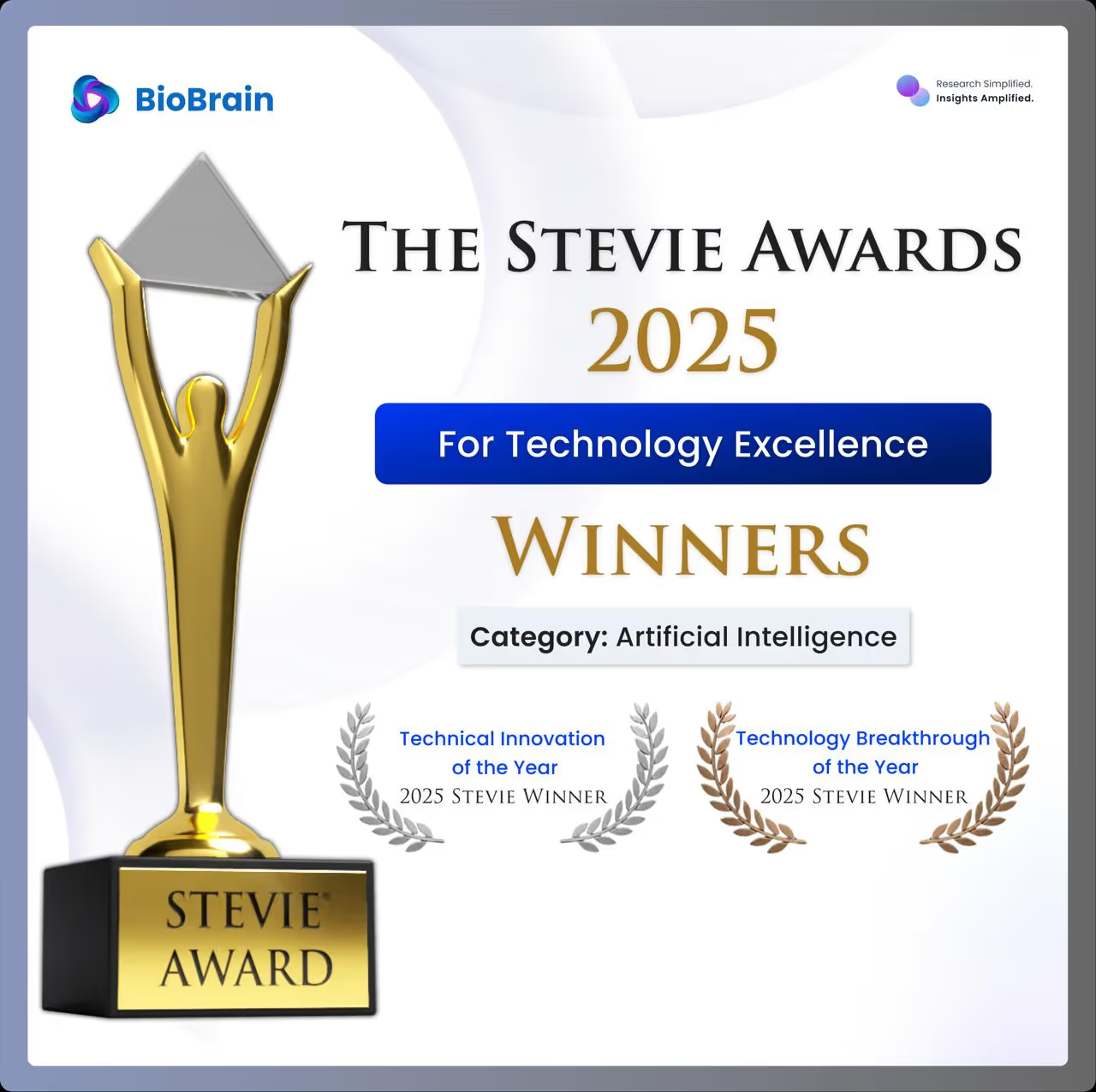Embracing Questionnaire Automation for Dynamic Market Insights
In the ever-evolving landscape of the business world, staying ahead requires a profound understanding of market dynamics, consumer behaviors, and industry trends. Market research serves as the compass guiding businesses through this intricate landscape, providing the insights needed for informed decision-making. However, the conventional methods of market research are not without their challenges.
Traditional market research workflows often grapple within efficiencies, time-consuming processes, and the potential for human error. The sheer volume of data to be collected and analyzed can overwhelm even the most dedicated research teams, leading to delays in crucial decision-making. As businesses increasingly recognize the pivotal role that data-driven insights play in gaining a competitive edge, the need for a more streamlined and efficient market research approach becomes apparent.
This is where the transformative power of questionnaire automation comes into play. As we delve into the intricacies of market research, this blog aims to shed light on the challenges faced by traditional workflows, underline the significance of market research in the contemporary business landscape, and provide a tantalizing glimpse into how questionnaire automation is revolutionizing the very core of market research processes. Let's embark on a journey into the future of market research, where efficiency, accuracy, and adaptability converge to redefine the way businesses glean insights in the pursuit of success.
The Current Landscape of Market Research

Conventional Methods of Conducting Market Research
In the traditional realm of market research, businesses have long relied on manual and labor-intensive methods to gather crucial data. Surveys, focus groups, and interviews have been the bedrock of understanding consumer preferences, market trends, and competitive landscapes. While these methods have provided valuable insights over the years, they come with inherent challenges that hinder the pace and efficiency of the research process.
The Time and Resource-Intensive Nature of Traditional Survey Processes
One of the primary challenges of conventional market research lies in the time and resources required to conduct surveys. From designing questionnaires to administering them, collecting responses, and finally analyzing the data, each step demands meticulous attention and considerable effort. Research teams often find themselves mired in a time-consuming cycle, delaying the delivery of insights crucial for strategic decision-making.
The resource-intensive nature of these processes is evident not only in the man-hours required but also in the financial investment. Printing and distributing surveys, managing logistics for focus groups, and manually entering and processing data all contribute to a significant allocation of resources. This can be particularly daunting for businesses operating in dynamic markets where agility and swift decision-making are paramount.
The Importance of Accurate and Timely Data in Decision-Making
In an era defined by rapid technological advancements and ever-changing consumer behaviors, the importance of accurate and timely data cannot be overstated. Businesses navigating today's competitive landscape need insights that are not only comprehensive but also swiftly actionable. The lag introduced by the traditional market research model often results in outdated information, limiting a company's ability to respond promptly to market shifts.
Decisions made based on stale or incomplete data can have far-reaching consequences, affecting product development, marketing strategies, and overall competitiveness. As markets evolve at an unprecedented pace, the ability to make informed decisions quickly becomes a key differentiator for businesses seeking sustainable growth.
As we navigate the challenges inherent in the current landscape of market research, the stage is set for exploring how questionnaire automation emerges as a beacon of efficiency and agility, promising to reshape the way businesses gather and leverage market insights.
The Evolution of Questionnaire Automation

Trace the Evolution of Technology in the Market Research Sector
The journey of technology in the market research sector has been marked by transformative leaps, mirroring the broader technological advancements in society. From the initial transition to computer-assisted methods in the late 20th century to the current era of sophisticated data analytics and artificial intelligence, technology has progressively enhanced the capabilities and methodologies of market researchers.
The advent of online surveys, electronic data collection, and advanced statistical analysis tools has significantly improved the speed and accuracy of gathering market insights. However, it's the recent emergence of questionnaire automation that stands as a paradigm shift in the way market research is conducted.
Introducing Questionnaire Automation as a Game-Changer
Questionnaire automation represents a revolutionary stride forward in the realm of market research. Gone are the days of manual data entry, cumbersome survey distribution, and lengthy analysis processes. With questionnaire automation, technology takes center stage in orchestrating a seamless, end-to-end research experience.
At its core, questionnaire automation leverages cutting-edge technologies to streamline and optimize every stage of the research process. It transcends the limitations of traditional methods, offering researchers a dynamic and responsive tool that adapts to the fast-paced demands of contemporary business environments.
Addressing Common Pain Points in Traditional Market Research
Automation addresses several pain points inherent in traditional market research methodologies
- Efficiency: By automating the survey administration and response collection, questionnaire automation significantly reduces the time required for data collection. Surveys can be disseminated swiftly, responses gathered in real-time, and the entire process expedited.
- Accuracy: Human error, a persistent challenge in manual data entry and processing, is greatly minimized through automation. Data accuracy is enhanced as responses are directly fed into a digital system, reducing the risk of transcription mistakes.
- Resource Optimization: Automation eliminates the need for physical survey materials, printing, and manual data entry resources. This not only saves costs but allows businesses to allocate resources more strategically, focusing on data interpretation and strategic decision-making.
- Adaptability: With automated systems, researcher scan easily customize and modify surveys to suit evolving research needs. This adaptability ensures that businesses stay agile in response to changing market dynamics.
As we witness the evolution of questionnaire automation, it becomes evident that technology is not merely a facilitator but a catalyst fora fundamental shift in the way market research is conceptualized and executed. In the subsequent sections, we'll explore how this technological innovation is reshaping market research workflows, offering businesses a transformative approach to gathering and leveraging insights.
Efficiency and Accuracy Through Automation

Impact on the Efficiency of Data Collection
Questionnaire automation heralds a new era of efficiency in data collection for market research. By automating the entire survey process, from creation to distribution and response compilation, businesses experience a quantum leap in the speed at which data is collected.
Swift Distribution and Response Collection
With questionnaire automation, surveys can be swiftly created and distributed to a targeted audience. Digital distribution channels, such as email or online platforms, facilitate rapid outreach, allowing businesses to gather responses in real-time. This agility in distribution significantly shortens the time it takes to collect a substantial volume of data.
Real-time Monitoring and Analytics
Automation empowers researchers with real-time monitoring capabilities. They can track responses as they pour in, identify trends, and make necessary adjustments on the fly. This instant feedback loop enhances the overall efficiency of the data collection process, enabling researchers to adapt their strategies dynamically.
Reduction of Human Error Through Automation
Human error has long been a challenge in manual data entry and processing. Questionnaire automation addresses this issue head-on, minimizing the likelihood of errors and ensuring data accuracy.
Elimination of Manual Data Entry
Automated systems eliminate the need for manual data entry. Responses are directly captured and recorded digitally, reducing the risk of transcription errors that often plague traditional methods. This not only enhances the accuracy of the collected data but also frees up researchers from tedious manual tasks.
Consistency in Data Interpretation
Automation ensures a standardized approach to data collection and interpretation. Every respondent interacts with the same set of questions presented in a consistent manner. This eliminates variations that may arise in manual survey administration, ensuring the reliability and accuracy of the data.
Timely Insights Through Quicker Data Collection
The accelerated pace of data collection afforded by questionnaire automation translates directly into more timely insights for businesses.
Rapid Response to Market Dynamics
In fast-paced industries, the ability to collect, process, and analyze data quickly is paramount. Automated processes enable businesses to respond promptly to emerging market trends, shifting consumer behaviors, or competitive developments. This agility in data collection facilitates a proactive rather than reactive approach to decision-making.
Faster Iteration and Strategy Adjustment
Quicker data collection allows for faster iteration of research strategies. If initial survey results indicate the need for adjustments, researchers can implement changes promptly, ensuring that subsequent data collection is more aligned with evolving research goals. This iterative approach enhances the overall responsiveness of market research workflows.
Adaptability to Diverse Research Needs

Flexibility Across Various Research Methodologies
Questionnaire automation distinguishes itself through its remarkable flexibility, accommodating a wide array of research methodologies. Unlike rigid traditional survey methods, automated systems are adaptable to the unique requirements of different research approaches.
1. Surveys and Questionnaires
Traditional Surveys: Automation can replicate the structure of traditional surveys, making the transition seamless for researchers accustomed to conventional methods.
Online Surveys: Automated platforms facilitate the creation and distribution of online surveys, catering to the digital preferences of modern respondents.
Mobile Surveys: With the prevalence of smartphones, questionnaire automation extends its reach to mobile surveys, allowing for data collection on-the-go.
2. Focus Groups and Interviews
Virtual Focus Groups: Automation supports the organization and management of virtual focus groups, eliminating geographical constraints and allowing for a diverse participant pool.
Automated Interviews: Questionnaire automation extends beyond surveys to automate interview processes, providing a standardized approach to data collection.
3. Longitudinal Studies
Continuous Data Collection: Automated systems facilitate the implementation of longitudinal studies by enabling continuous data collection over extended periods, capturing evolving trends and behaviors.
Applicability to Different Industries and Market Segments
Questionnaire automation transcends industry boundaries, making it a versatile tool applicable to diverse sectors. Its adaptability ensures that businesses across various domains can harness its power to gain actionable insights.
1. Healthcare
Patient Feedback Surveys: Automation streamlines patient feedback collection, allowing healthcare providers to enhance patient experiences and improve service quality.
2. Finance
Customer Satisfaction Surveys: Financial institutions can utilize automated surveys to gauge customer satisfaction, identify pain points, and refine their services.
3. Marketing
Product Feedback Surveys: Marketers can gather rapid feedback on products and campaigns, enabling quick adjustments to maximize impact.
4. Retail
Consumer Behavior Studies: Automated surveys help retailers understand consumer preferences, track shopping behaviors, and optimize inventory management.
5. Technology
User Experience (UX) Surveys: Tech companies can employ automation to gather user feedback, enhancing the usability and functionality of their products.
Customization Options for Tailored Surveys
One of the standout features of questionnaire automation is its capacity for customization. Researchers can tailor surveys to specific needs, ensuring that the data collected aligns precisely with the objectives of the research project.
Question Types and Formats
Open-Ended and Closed-Ended Questions: Automation allows for a mix of question types, accommodating both qualitative and quantitative data collection.
Multimedia Integration: Researchers can include images, videos, or audio elements to enhance survey engagement and capture nuanced responses.
Survey Logic and Branching
Dynamic Surveys: Automation enables the creation of dynamic surveys with conditional logic, ensuring that respondents encounter questions relevant to their previous answers.
Branding and Aesthetics
Branded Surveys: Businesses can customize the visual elements of surveys to reflect their brand identity, fostering a sense of familiarity among respondents.
In conclusion, the integration of questionnaire automation into market research workflows stands as a monumental leap forward, offering a myriad of benefits that revolutionize the traditional approaches to data collection and analysis.
Embracing technological advancements is no longer a choice but a necessity for businesses striving to stay competitive in today's dynamic market landscape. Questionnaire automation represents a pivotal step in this journey, offering businesses a transformative tool to elevate their market research capabilities.
As we navigate an era defined by information abundance and digital evolution, businesses that harness the power of questionnaire automation will find themselves not only surviving but thriving. The ability together, analyze, and act upon data with unprecedented speed and accuracy is a strategic advantage that no forward-thinking organization can afford to overlook.













